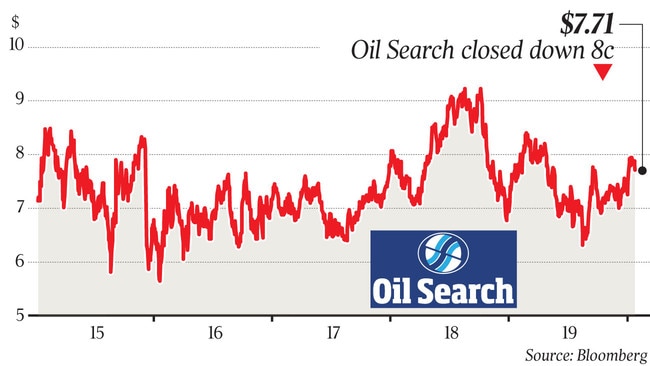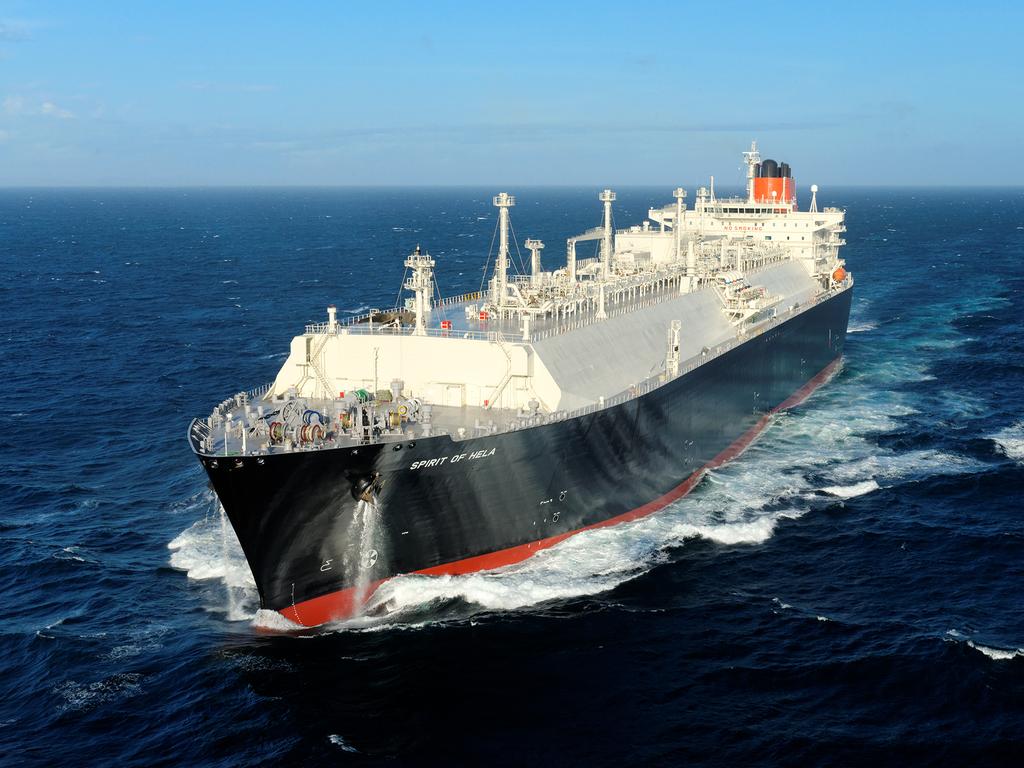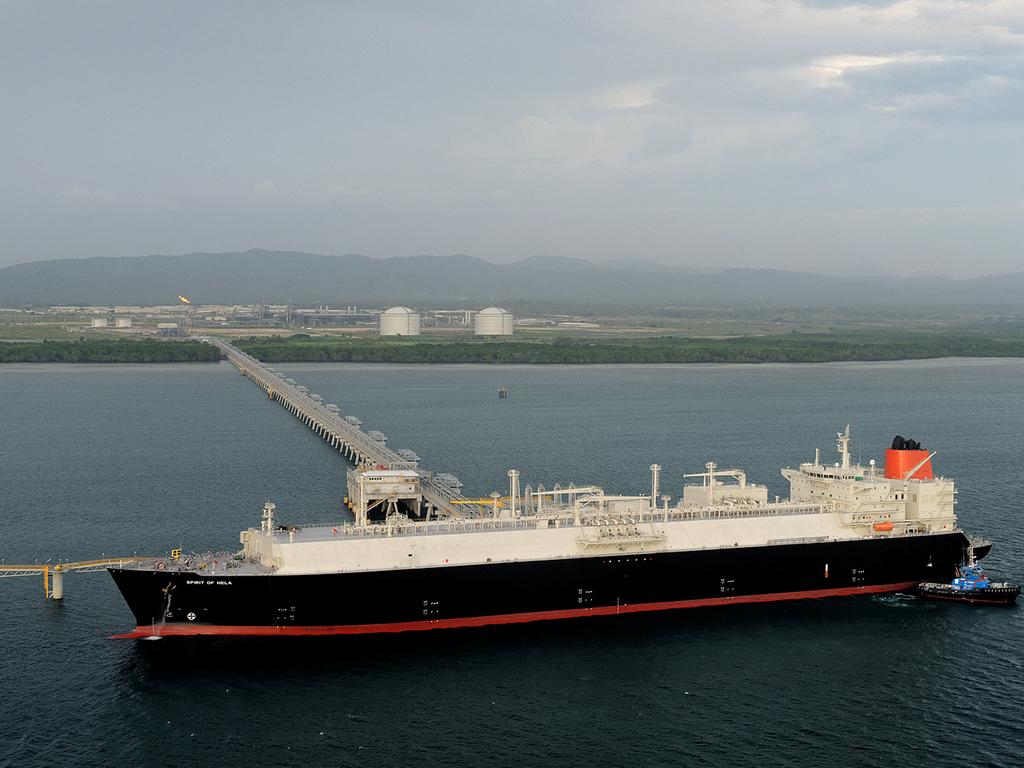How Peter Botten built Oil Search into an energy empire
By any measure, Peter Botten’s quarter century reign leading Oil Search ranks as one of corporate Australia’s success stories.

By any measure, Peter Botten’s quarter century reign leading Oil Search ranks as one of corporate Australia’s success stories.
The Papua New Guinea focused gas producer has grown from a $250m minnow in 1994 with just seven staff and sustained by a single oil project to a $12bn powerhouse today.
Much of that value came via an audacious bet: tapping the impoverished Pacific nation’s energy rich but remote gas fields, piping the product to the Port Moresby shore where massive tankers await to export the fuel as LNG to some of Asia’s biggest utilities.
Then there’s Botten himself.
The average Australian boss lasts just short of five years in the top job, with a decade considered a long stint, often reflecting the value of that leader to their organisation.
But for many shareholders, Botten and Oil Search are all they’ve known.
“It’s incredibly rare to have a run like this and to play a part in building something greater than most of us could have imagined,” the British-born petroleum industry veteran told The Weekend Australian.
“Being on the ground in PNG and delivering on our promises has been hugely fulfilling.”
Oil Search owns 29 per cent of the PNG LNG plant operated by ExxonMobil, which produces nearly 9 million tonnes a year of gas for export, with plans to double that amount through an expansion currently the subject of tense negotiations with the PNG government.

Some investors had questioned the drawn out timeline for Botten’s departure after he indicated a preference to remain boss through to the sign-off sometime this year of the $16bn investment. An added complication was Oil Search’s unexpected jump into Alaska in a bid to diversify revenues and deliver different faster returns to shareholders.
“There was a feeling for a while there the Oil Search board were waiting for Peter to lay down a timeline and leave when it suited him,” a top 10 investor said.
“But after it became clear it wouldn’t necessarily be smooth sailing negotiating the PNG expansion, I think common sense prevailed and the succession plan gathered some pace.”
That speculation led industry watchers to question whether Botten was pushed out earlier than he wanted, to be replaced by another company veteran in Keiran Wulff.
Botten rejects the rumour and said his impending exit on February 25 was his own call, though hints it may have also reflected the challenge of being based in Australia, spending the working week in PNG and also taking more frequent flights to the frozen wilderness of Alaska.
Most challenging of career
“In no sense was I in any way pushed,” Botten says.
“This was a decision that was very strongly mine and my family’s, but there was also a reality about it. I genuinely wanted to see the expansion project through to its key milestones and make sure they were going.
“But equally I’m 65 next week and there’s an inevitability that the pace and shape of how I’ve been involved in this company is not necessarily sustainable.”
Indeed, the last few years have perhaps proved among the most challenging of Botten’s career.
After navigating the politics of landowners, corruption, the rugged highlands of Hela Province and the challenge of convincing banks to lend to a high risk project, the $US19bn ($28bn) PNG LNG project was viewed as a shining success upon start-up in 2014.
“Peter Botten is a legend of the industry, having led pioneering efforts to open up a new multibillion-dollar industry in PNG,” says Credit Suisse analyst Saul Kavonic. “No other Australian company has achieved such enduring international success in oil and gas than Oil Search under Botten’s reign.”
But in the years since Botten has needed all of his nous, political connections and long-held relationships with local communities to navigate what he describes as “a few bumps on the road”.
Just under two years ago, Botten’s mobile rang just after 4am with the voice at the other end of a crackling satellite phone relaying that PNG had just been hit by a massive earthquake.
The devastation was huge and confronting with 160 people killed and villages in ruins.
With roads out of action for weeks, Oil Search became the de facto logistics provider using its fleet of helicopters to overcome a debilitated infrastructure network and help more than 120,000 people with emergency supplies in the Hela and Southern Highlands and parts of the Gulf and Western provinces.
Botten looks back with a sense of pride and says the response was a natural reaction for the company given its close links with remote PNG communities. It also earned Botten an Order of Australia in 2019.
Controversial deal
The next bump arrived last year when the terms of an old $1.2bn loan from UBS for the PNG government to take a 10 per cent stake in Oil Search re-emerged in the nation’s political sphere.
The controversial deal ultimately claimed the scalp of Prime Minister Peter O’Neill over claims he engaged in improper conduct relating to the UBS loan.
The deal at the time turned sour when the oil price fell, cutting Oil Search’s share price and slashing the value of PNG’s stake by hundreds of millions of dollars.
O’Neill’s successor, James Marape, seized upon the issue to set up a commission of inquiry in an attempt to discover whether the PNG government and its advisers flouted legal procedures.
Asked if the investigation may have cast a shadow over Oil Search’s role in the deal, Botten says he would welcome any probe to help put an end to the issue.
“In certain people’s views that might be the case but that’s why I absolutely welcome getting out what the real facts are and the only way people will judge you in the medium term is to get the facts out.
“There’s nothing to hide in what we did or how we did it and our role in that was purely asking for a cheque,” Botten says.
“And if you don’t give us that cheque, we’ve got another cheque next door. And I think the quicker we get that out and remove any ambiguities, the better. I’m very happy to participate as fully as I can to ensure full transparency.”
The other lingering question among many PNG observers is whether the big gas riches earned by Oil Search and its partner Exxon since 2014 could have been more equitably shared with the government and its people.
Playing hardball
An analysis by the International Monetary Fund found limited benefits for the Pacific nation from the original deal with the issue of returns compounded by the ill-fated UBS deal.
Marape has made a point of playing hardball with joint venture partners Oil Search, Exxon and France’s Total as part of the negotiations for an LNG expansion.
Botten maintains the original deal reflected the sovereign risk at the time but recognises that PNG is justified in insisting on a better deal for the expansion project.
“There is clearly a challenge for all of us to improve benefits distribution, transparency of where benefits are going and have gone from projects. And I think it’s quite natural for governments to revisit the value balance,” Botten says. “Projects two and three aren’t the same as number one. It’s not unusual and fiscal regimes are tweaked backward and forwards to reflect that.”
With negotiations taking place in Sydney this week between the joint venture partners and the PNG negotiating team, Botten is reluctant to predict when a deal will be sealed but does expect both sides will find a solution.
With the clock ticking, finalising a deal on Oil Search’s behalf will likely fall to Wulff, Botten’s successor, who is mapping out a broader strategy for the company and how it will look to develop in the coming years.
With fossil fuel companies under scrutiny over how they deal with the climate change crisis, Botten says he expects the issue will become more pressing from investors, employees and the broader corporate community.
“It does require co-ordination but it doesn’t require panic. There is no easy, quick fix to this but it is a challenge. Climate change is real and we need to manage it and also play a part in the energy mix that is the future.
“It’s somewhat unrealistic that hydrocarbons can just be phased out in the developing world. The strategic review the new CEO will do will undoubtedly have a substantial part in managing where we sit and climate change will be a big part of that.”
Botten will stay on as an adviser after passing on the leadership baton and will continue to hold a number of community board roles in PNG. “There is still a lot of work to do in PNG in helping boost social initiatives and community development and I hope to be part of those efforts for some time.”





To join the conversation, please log in. Don't have an account? Register
Join the conversation, you are commenting as Logout